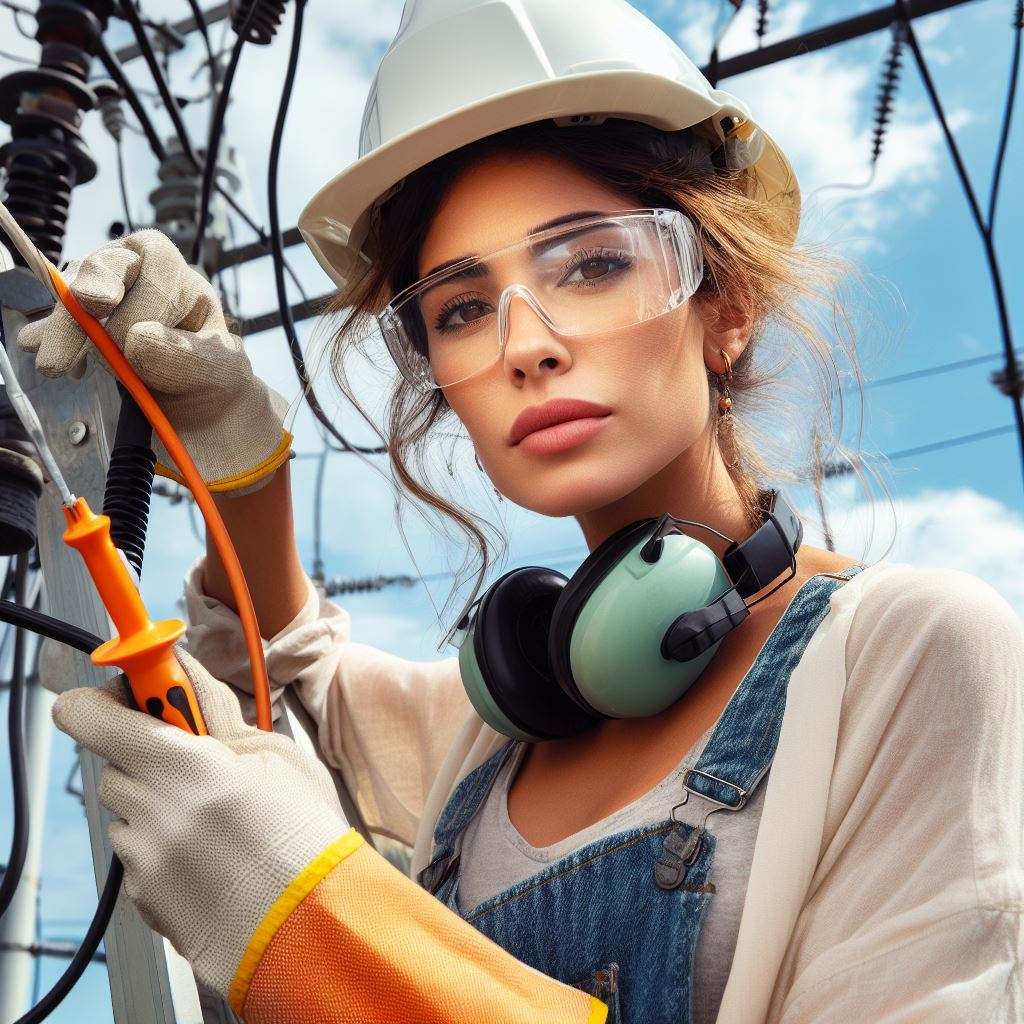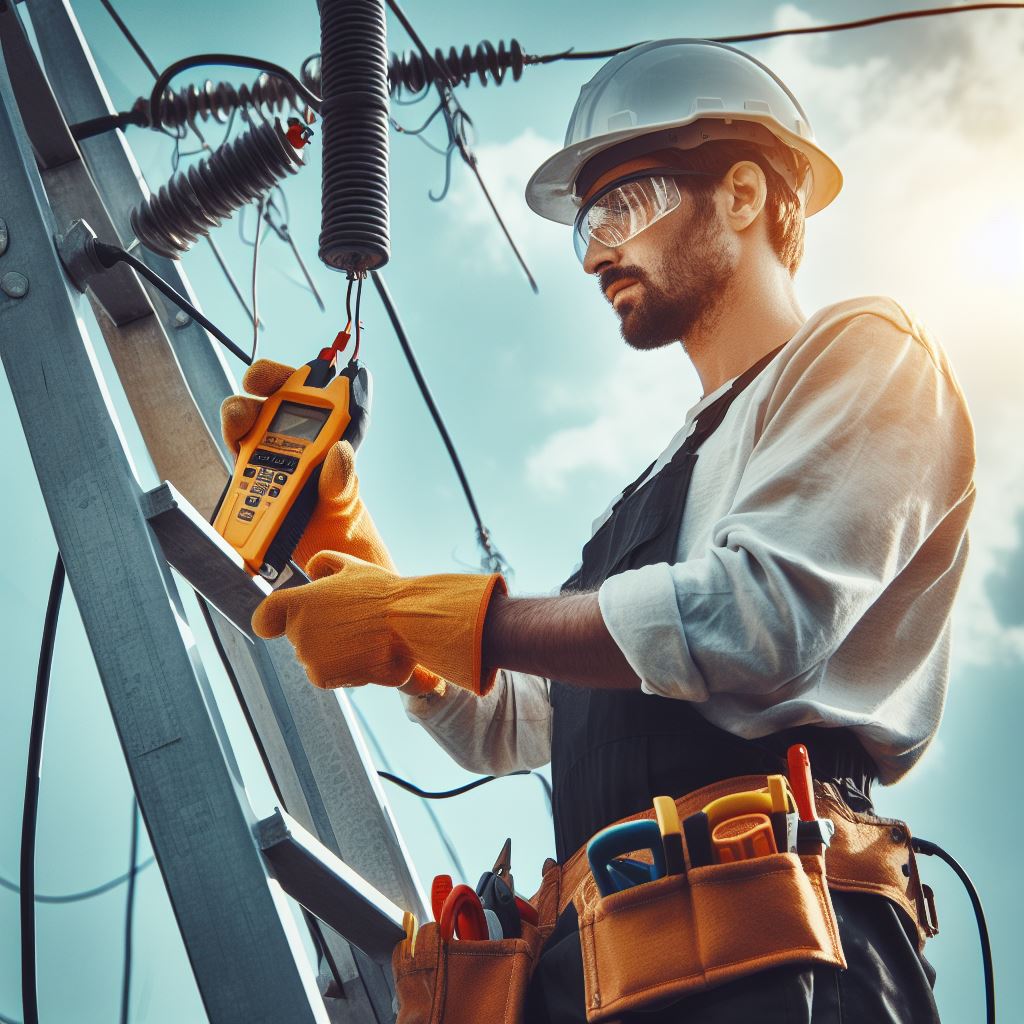Introduction
A natural disaster or emergency can strike unexpectedly, causing widespread devastation and chaos.
The significance of Plumbers Crisis Response in such situations cannot be overstated.
One crucial yet often overlooked aspect is the role of plumbers in addressing these crises.
Plumbers play a vital role in ensuring the availability of clean water and sanitation services.
Through their expertise and quick response, they contribute significantly to maintaining public health.
This blog post aims to shed light on the essential work plumbers perform during natural disasters and emergencies in the United States.
When disaster strikes, plumbing systems are often severely damaged or completely destroyed.
Broken pipes, sewage backups, and compromised water mains become common occurrences.
Plumbers are on the front lines of restoring these crucial systems, ensuring people have access to clean water for drinking, cooking, and sanitation purposes.
Furthermore, they work tirelessly to fix damaged infrastructure, such as toilets and sinks, to restore normalcy amidst the chaos.
By focusing on plumbers in the United States, we can examine their unique challenges and contributions within a specific context.
We will explore the training, equipment, and coordination required for plumbers to effectively respond to natural disasters and emergencies.
Understanding the critical role of plumbers in crisis response is vital for building resilient communities.
The Importance of Plumbers in Crisis Response
Plumbers play a crucial role in providing essential services during disasters and emergencies.
- Ensuring clean and safe water supply is one of the key services provided by plumbers.
They ensure that people have access to clean water for drinking, cooking, and sanitation. - Fixing broken or damaged pipes is another critical task carried out by plumbers during crises.
They repair leaks and restore water flow to affected areas. - Restoring sewer systems and drainage is an essential service provided by plumbers.
They work to unclog drains and fix any issues to prevent further damage and health hazards.
Plumbers also play a vital role in preventing further damage to infrastructure during disasters and emergencies.
The work of plumbers has a significant impact on public health and safety during crises.
Read: Balancing Work and Family Life as a Plumber in the US
Plumbers Training and Preparedness for Crisis Situations
Explain the training and certification requirements for becoming a plumber in the US
- Plumbers in the US must complete an apprenticeship program, which combines classroom and on-the-job training.
- They are required to have a high school diploma or equivalent to enroll in these programs.
- Once they complete the apprenticeship, plumbers must pass a state licensing exam to become certified.
- Certification ensures that plumbers have the necessary skills and knowledge to perform their job safely and efficiently.
Discuss the additional training plumbers undergo for crisis response
- In addition to their regular training, plumbers also undergo specialized training for crisis situations.
- This includes learning about emergency protocols, disaster management, and working in hazardous environments.
- They are trained to handle various types of emergencies such as floods, earthquakes, and hurricanes.
- Plumbers also learn how to quickly assess a crisis situation and take the necessary steps to mitigate damage.
Highlight the importance of being prepared and having specialized skills for emergency situations
- When a natural disaster or emergency strikes, having trained plumbers with specialized skills is crucial.
- They play a vital role in ensuring access to clean water and proper sanitation during these situations.
- Plumbers are trained to handle emergencies efficiently, minimizing the risk of further damage and ensuring public safety.
- Their preparedness and ability to respond quickly can make a significant difference in saving lives and property.
Mention any specific organizations or authorities that provide training and guidance to plumbers in crisis response
- The National Association of Plumbing-Heating-Cooling Contractors (NAPHCC) offers specialized training for crisis response.
- The Environmental Protection Agency (EPA) provides guidance to plumbers on handling hazardous materials during emergencies.
- Local government agencies and emergency management organizations often work in collaboration with plumbers.
- These organizations provide resources, training programs, and support to help plumbers effectively respond to crises.
In short, plumbers in the US undergo extensive training and certification to become skilled professionals.
Additionally, they receive specialized training to handle crisis situations, such as natural disasters and emergencies.
Their preparedness and specialized skills are essential for ensuring access to clean water, maintaining sanitation, and preventing further damage during crises.
Transform Your Career Today
Unlock a personalized career strategy that drives real results. Get tailored advice and a roadmap designed just for you.
Start NowOrganizations like NAPHCC, EPA, and local government agencies play a crucial role in providing training and guidance to plumbers in crisis response.
By having well-trained and prepared plumbers, communities can effectively manage and overcome the challenges posed by natural disasters and emergencies.
Read: Overcoming Challenges: Adapting to US Plumbing Innovations

Plumbers’ Contributions in Recent US Natural Disasters
Examples of Natural Disasters where Plumbers Played a Crucial Role in Crisis Response
- Hurricane Katrina: Plumbers provided essential services in New Orleans, ensuring access to clean water and repairing damaged plumbing systems.
- California Wildfires: Plumbers worked tirelessly to restore water supply and fix pipe damages caused by the fires.
- Superstorm Sandy: Plumbers played a vital role in restoring plumbing systems and preventing water contamination in affected areas.
Specific Challenges Faced by Plumbers in Each Disaster
- Hurricane Katrina: Plumbers faced immense challenges due to extensive flooding, damaged infrastructure, and limited access to affected areas.
- California Wildfires: Plumbers had to deal with dangerous working conditions, damaged pipelines, and the risk of encountering hazardous materials.
- Superstorm Sandy: Plumbers encountered complications arising from flooded basements, contaminated water, and damaged underground sewage systems.
Highlighting Success Stories and the Positive Impact of Plumbers’ Work during these Crises
Despite the challenges, plumbers demonstrated their invaluable contributions, leaving lasting impressions in the affected communities.
In the aftermath of Hurricane Katrina, plumbers played a crucial role in rebuilding the city’s infrastructure, enabling residents to return to their homes and rebuild their lives.
In California, plumbers went above and beyond by providing support to firefighters and other emergency personnel, ensuring access to clean water in evacuation centers, and helping affected families restore their plumbing systems.
Superstorm Sandy witnessed numerous success stories of plumbers who worked diligently to repair damaged plumbing, preventing waterborne diseases and ensuring safe living conditions for affected residents.
The positive impact of plumbers’ work during these crises cannot be overstated.
Their expertise and dedication were instrumental in restoring normalcy and ensuring the well-being of affected communities.
In essence, plumbers have emerged as unsung heroes in the face of US natural disasters.
Their crucial contributions in disasters like Hurricane Katrina, California wildfires, and Superstorm Sandy have been vital in crisis response, despite the challenges they face.
The success stories and positive impact of their work serve as a testament to their importance and the indispensable role they play in such emergencies.
Read: Real Stories: Day in the Life of an American Plumber
Collaboration with Other Emergency Response Professionals
Importance of Collaboration between Plumbers and Other Emergency Response Professionals
In times of natural disasters and emergencies, collaboration between plumbers and other emergency response professionals is crucial.
- Efficient Problem-Solving: Plumbers and other professionals bring diverse skills and expertise to the table, enabling effective problem-solving.
- Resource Optimization: Collaboration ensures the optimum utilization of resources, reducing duplication and saving time and effort.
- Enhanced Safety Measures: Cooperation between different professionals ensures the implementation of comprehensive safety measures, minimizing risks.
Key Partnerships and Coordination Required in Crisis Situations
During crisis situations, plumbers need to establish key partnerships and maintain coordination with various emergency response professionals.
- Local Authorities: Collaborating with local authorities ensures plumbers access affected areas while adhering to safety protocols, allowing efficient service delivery.
- Firefighters: Plumbers and firefighters often work together to extinguish fire-related incidents and prevent further damage to infrastructure.
- Electricians: Coordination with electricians is vital to avoid electrical hazards during plumbing repair work, ensuring the safety of both professionals.
- Engineers: Consulting engineers can provide valuable insights regarding structural integrity, identifying potential risks during plumbing repairs in crisis situations.
- Disaster Relief Organizations: Collaboration with relief organizations enables plumbers to reach remote areas and provide essential services to affected communities.
Examples of Successful Collaborations between Plumbers and Other Agencies/Organizations in the US
Numerous successful collaborations between plumbers and other agencies/organizations demonstrate the effectiveness of joint efforts during crisis situations in the United States.
- Hurricane Katrina (2005): Plumbers collaborated with FEMA (Federal Emergency Management Agency) and local authorities to repair damaged plumbing systems and restore access to clean water in affected areas.
- California Wildfires (2019): Plumbers partnered with environmental agencies to mitigate contamination risks in water supply caused by firefighting efforts, ensuring safe drinking water for communities.
- Superstorm Sandy (2012): Collaboration between plumbers, electricians, and engineers helped restore damaged infrastructure while maintaining safety standards, allowing affected areas to recover promptly.
- Tornado Outbreaks (various years): Plumbers collaborated with disaster relief organizations to provide temporary shelter plumbing services to affected individuals and communities.
- COVID-19 Pandemic (ongoing): Plumbers worked closely with healthcare facilities and governmental health agencies to ensure proper plumbing systems to support infection control measures, safeguarding public health.
Basically, collaboration between plumbers and other emergency response professionals plays a vital role in crisis response situations.
By working together, these professionals can effectively solve problems, optimize resources, and enhance safety measures, ultimately contributing to the swift recovery of communities affected by natural disasters and emergencies.
Read: Demand Forecast: The Future of Plumbing Jobs in the USA
Public Awareness and Preparedness
The Role of Plumbers in Raising Public Awareness about Crisis Preparedness
Plumbers can educate the public about the importance of preparedness in the face of natural disasters.
Transform Your Career Today
Unlock a personalized career strategy that drives real results. Get tailored advice and a roadmap designed just for you.
Start NowThey can organize workshops or seminars to inform people about emergency plumbing procedures.
By emphasizing the role of plumbing in crisis situations, plumbers can help individuals understand its significance.
Plumbers can collaborate with local authorities to establish public awareness campaigns specifically focused on plumbing emergencies.
Through social media platforms and websites, plumbers can share tips and information on crisis preparedness.
They can create informative brochures or flyers to distribute in communities, highlighting plumbing-related aspects of emergency preparedness.
Plumbers can participate in community events and engage with the public to discuss the importance of being prepared.
By actively promoting preparedness, plumbers can ensure people are aware and ready to face emergencies effectively.
Tips and Advice for Individuals to Prepare Their Plumbing Systems for Emergencies
Regularly inspect and maintain all plumbing fixtures and connections in your home.
Identify and label the main water valve and individual shut-off valves for quick accessibility.
Keep necessary plumbing tools and supplies handy, such as pipe wrenches, sealants, and spare parts.
Secure all outdoor pipes and faucets and insulate them during cold weather to prevent freezing and bursting.
Ensure that your sump pump and backup systems are in proper working condition to avoid basement flooding.
Consider installing a water leak detection system to detect and prevent potential water damage.
Regularly clean and maintain your gutters and downspouts to avoid water overflow and potential indoor flooding.
Have a clear plan in place for how to turn off the water supply in case of an emergency.
Keep an updated list of emergency plumbing contacts, including local plumbers and utility companies.
Educate yourself and your family about basic DIY plumbing fixes to address minor issues during emergencies.
Existing Initiatives and Campaigns Related to Public Awareness and Preparedness
The Federal Emergency Management Agency (FEMA) runs the Ready campaign, which promotes overall preparedness for disasters.
The American Red Cross offers resources and education to help individuals and communities prepare for emergencies.
Many local governments have emergency management departments that provide information and resources for crisis preparedness.
The National Weather Service frequently shares updates and safety tips to prepare for severe weather conditions.
Non-profit organizations like the Plumbing Foundation promote public awareness about plumbing safety and emergencies.
Online platforms, such as emergency preparedness websites and social media groups, focus on sharing information and tips for crisis situations.
Plumbing companies often contribute to public awareness by providing articles and resources on their websites or through collaborations.
Local news outlets frequently cover stories on crisis preparedness, offering valuable information to the public.
Community organizations and neighborhood associations often organize events and workshops related to emergency preparedness.
Plumbing trade organizations, like the Plumbing-Heating-Cooling Contractors Association, actively promote preparedness among their members and the general public.
Conclusion
- Plumbers have proven to be crucial in crisis response situations, providing essential services.
- It is important to recognize and support the work of plumbers during natural disasters and emergencies.
- I urge individuals and communities to prioritize crisis preparedness and value the contributions of plumbers. Take action now!
Amid US natural disasters, plumbers act swiftly, repairing critical infrastructure. They tackle urgent issues, averting further damage.
In emergencies, plumbers demonstrate resilience, ensuring essential water and sanitation services.
Transform Your Career Today
Unlock a personalized career strategy that drives real results. Get tailored advice and a roadmap designed just for you.
Start NowThese skilled professionals play a pivotal role, responding adeptly to crises, securing communities.
Their proactive measures mitigate risks, contributing significantly to disaster recovery.
Plumbers’ agility and expertise in emergency situations showcase their indispensable role in safeguarding public health and well-being.
In the face of adversity, their rapid response and problem-solving abilities stand as a testament to the vital importance of their profession.
As unsung heroes, plumbers contribute substantially to rebuilding communities and restoring normalcy after natural disasters, embodying resilience and dedication in times of crisis.




